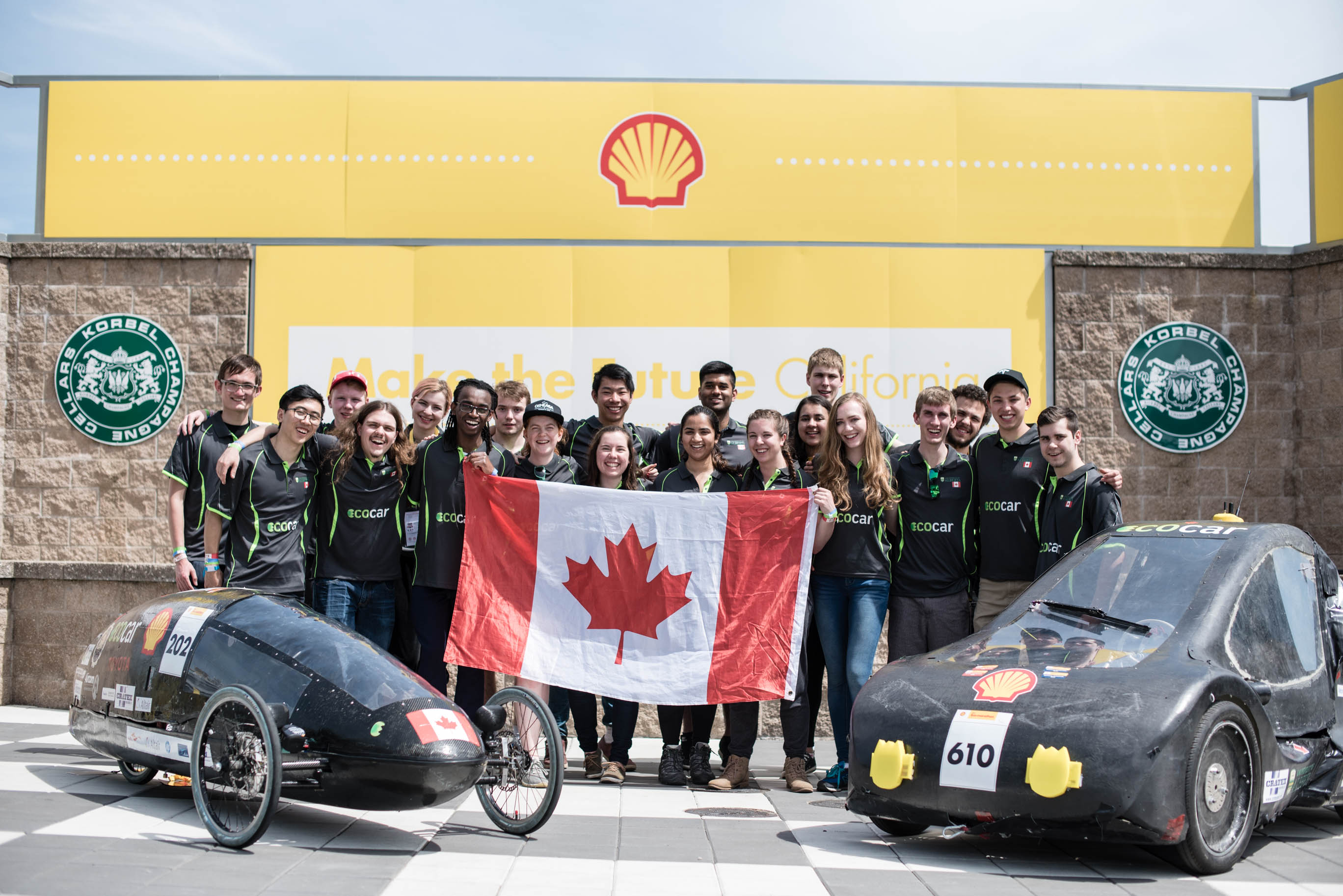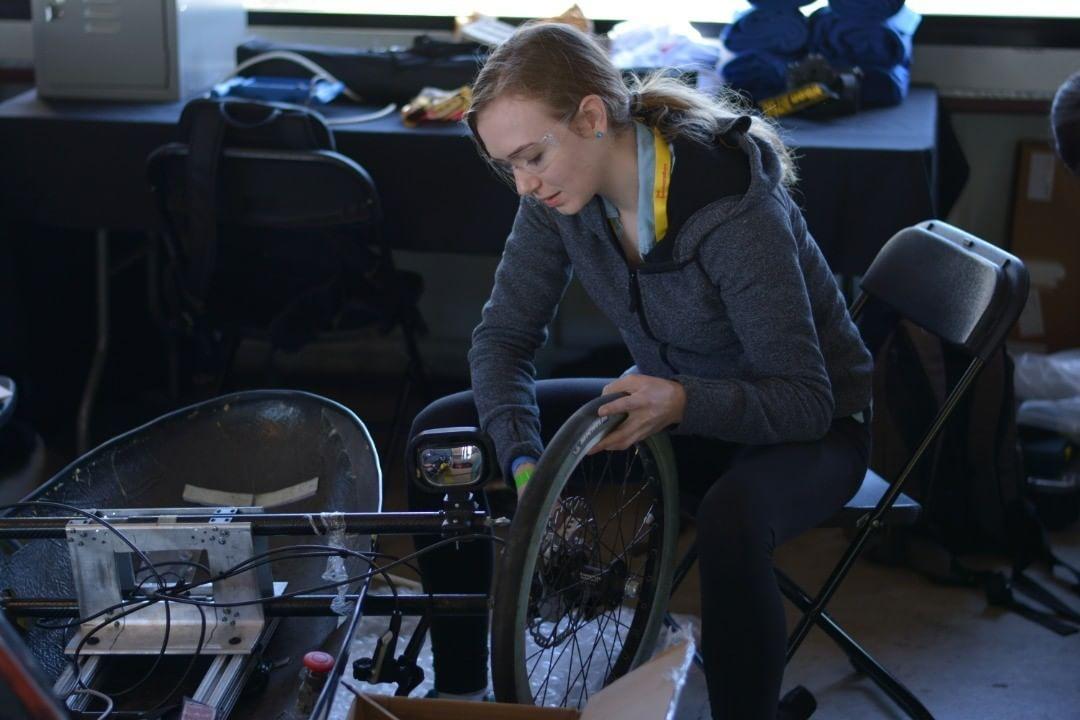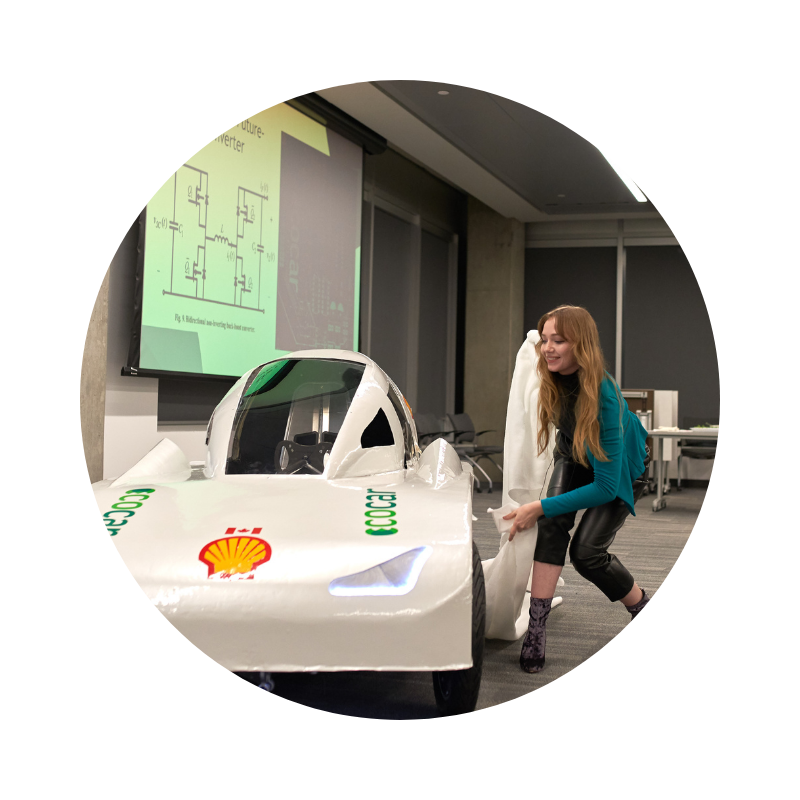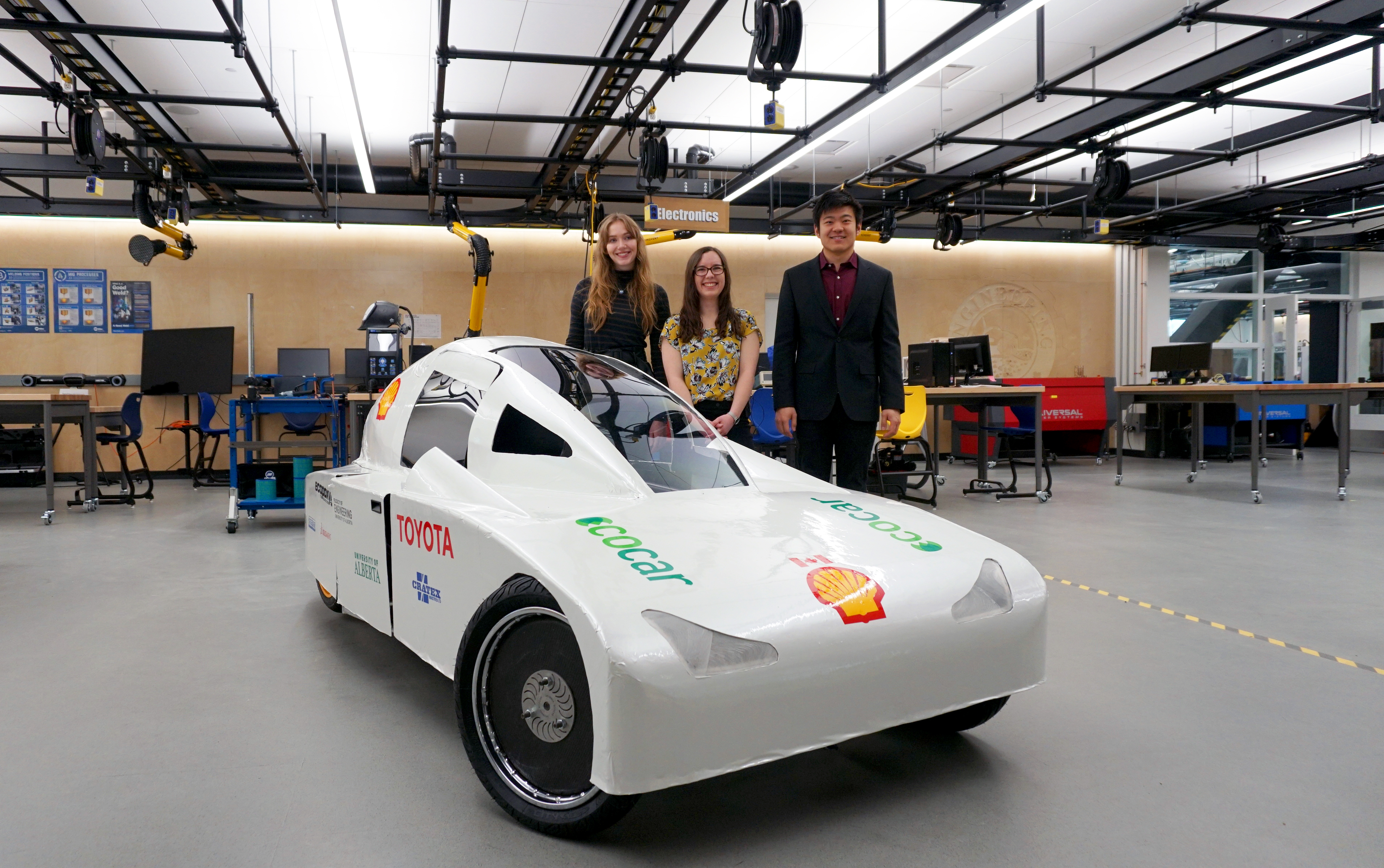As a fifth-year student graduating from chemical engineering this spring, I can confidently say that the course of my undergrad experience has been shaped by my involvement with the University of Alberta Eco-Car. Eco-Car is a student team, funded in part by The Spirit of George Ford Endowment Fund, that designs and builds hydrogen fuel cell cars. When I started in engineering, like many first year students, I entered the program not fully understanding just how broad a field engineering was. I was overwhelmed with the breadth of interesting problems that engineers could solve. My interests were focused enough for me to know what discipline to study, but beyond that I couldn’t imagine having to choose a specific industry or define a problem that I wanted to solve in my career after graduating.

I had heard from older students that joining an engineering student team was the highlight of their university experience, and that it helped them develop skills that were essential in their final year capstone design projects. Being interested in chemical engineering, I was especially drawn to Eco-Car because I felt that the fuel cell component meant that the team had the most interdisciplinary elements— combining electrochemical processes with electrical systems, as well as mechanical elements of car design. I joined the Eco-Car team in my first year, and I was stunned by the expertise that my teammates had developed in pursuit of the project, completely outside of their classes. It was incredibly daunting, but the team was a huge source of motivation for me to prioritize learning across disciplines in order to contribute to our collective goal of creating the most fuel-efficient fuel cell car. I started out with almost no hands-on experience— my work on Eco-Car may have been my first time ever touching a wrench. I eventually became confident working with others to build car systems that not only worked, but exemplified the feasibility of high-potential sustainable transportation technology. After all, as we look to car manufacturers to develop lower-emissions vehicles, if we as students can build a zero-emissions vehicle, it can be done!

Not only did my involvement with Eco-Car equip me with practical skills, but it also gave me perspective and vision for the energy transition, which is an incredibly important area of focus for future innovation. As I learned more about fuel cells, I found myself in the position of speaking on behalf of the team about hydrogen systems at conferences and at workshops. Sharing Eco-Car’s mission and values with the community really deepened my passion for the team and for its goal of advancing sustainable energy and transportation. I became Eco-Car’s Assistant Project Manager and Project Manager in my third and fourth years, respectively. I was involved in more outreach activities, which became many of the most important experiences of my undergrad degree— one even led me to my final eight-month co-op term.
Advocating for fuel cell systems prompted me to envision their future importance and the role I could potentially play in making that vision a reality. Largely due to the experience and insights I have developed on the Eco-Car team, I will be pursuing a postgraduate degree in Europe this fall with the goal of further contributing to the development of sustainable energy technologies. Discovering a passion around something I hope to build my career has only been possible because of Eco-Car and the generosity of the George Ford Endowment Fund, which has enabled numerous engineering student groups to transform the educational experience of students such as myself.

About Willow
Willow is a fifth-year chemical engineering co-op student at the University of Alberta, and the Project Manager of the Eco-Car team. After joining the team in 2016 to work on the car’s hydrogen fuel cell system, Willow developed a passion for fuel cells and the implications they have on sustainable energy systems. After graduation this spring, Willow will be pursuing postgraduate studies in Europe with the eventual goal of contributing to the global energy transition.
